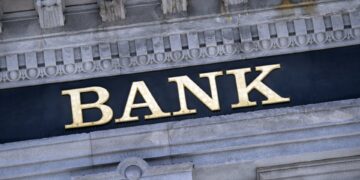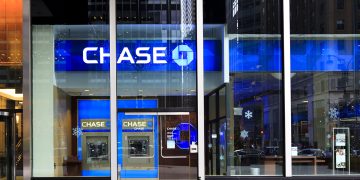Late last month at its monetary policy meeting, U.S. Federal Reserve officials agreed to keep supporting the economy by leaving interest rates near zero and to continue purchasing $120 billion in bonds.
With one week already gone in February, some investors consider the event old news and are already looking forward to the central bank’s March 16-17.
Fed members Mester and Bullard both see the need for short-term support to guide the economy through the pandemic, but they are also placing a lot of confidence in the vaccine rollout to pull the economy higher in the second half of the year.
Fed’s Mester Says More Fiscal Help May Be Needed in Short Term
While easy monetary policy can support the U.S. economy in the long-term, more fiscal help may be needed in the short-term to carry the economy through the pandemic, Cleveland Federal Reserve Bank President Loretta Mester said last Wednesday and Reuters reported.
Mester reiterated her view that monetary policy is “in a good spot.”
“Fiscal policy is the tool that you need to really direct…relief to get through this period,” Mester said during a virtual discussion with former Fed presidents organized by the Council of Economic Education.
The Fed official repeated her view that the economic activity could pick up in the second half of the year if most Americans are vaccinated against the coronavirus by the third quarter.
Mester said she is not concerned that the Fed could be late to responding to higher inflation because the relationship between the labor market and inflation is weaker than it has been in the past.
“There’s a lot of structural pressures that keep inflation down,” Mester said. “My concern now is that we can get to the place where we’re post vaccine.”
Mester also added the moment at which policymakers might start to withdraw its bond purchasing support and start to raise interest rates would be apparent to investors because the economy will be in a stronger place.
“We want to avoid a taper tantrum,” Mester said. “It’s going to be based on what’s the outcome in the economy. That’s transparent to everyone.
Fed’s Bullard Sees ‘Very Strong’ US Economic Growth as Pandemic Eases in 2021
The coronavirus pandemic should ease over the first half of the year and give way to “very strong” U.S economic growth during 2021, St. Louis Fed President James Bullard said last week and Reuters reported.
“The health crisis will wane in the months ahead” as more people are vaccinated, Bullard said. As it does, families will be able to tap an “exceptionally high” level of savings and financial resources in hand after a year in which government programs pumped trillions of dollars into the economy.
“Monetary and fiscal policies have been especially aggressive, and the associated macroeconomic outcomes have been considerably better than expected,” Bullard said in remarks prepared for delivery at the CFA Society of St. Louis.
Bullard’s bullish outlook suggests the U.S. unemployment rate could fall from the current 6.7% to as low as 4.8% “in the months ahead.” That is higher than the 3.5% seen before the pandemic, but less, Bullard noted, than the median of 5.6% in the period after World War II.
Bullard did not condition his estimates on any further government spending. Congress is currently debating a $1.9 trillion relief proposal from the Biden administration, which some argue could speed hiring even further.








